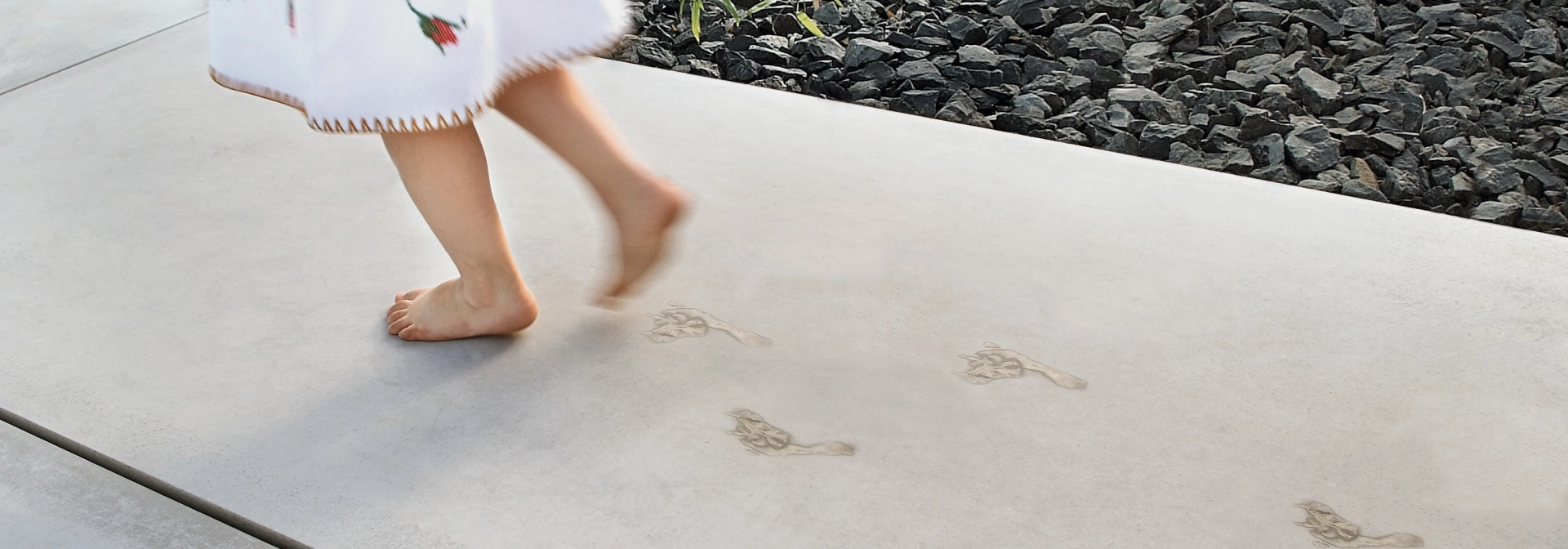

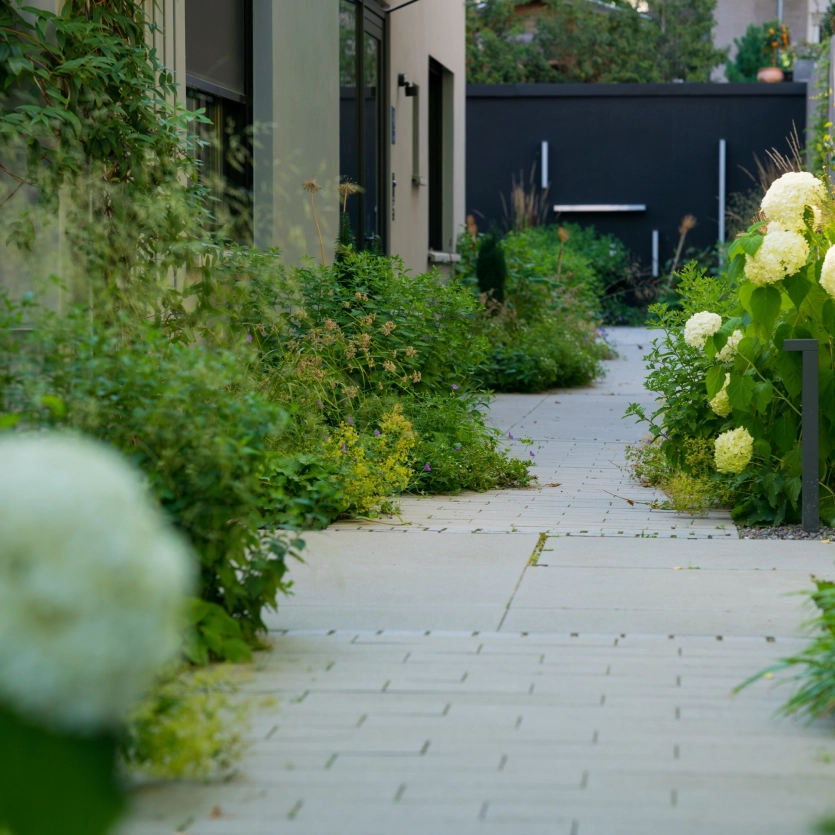
As a rule, cleaning should be carried out once a year. However, the cleaning interval basically depends on individual requirements, usage and the degree of soiling. Do you want a natural patina or do you want the paving stones to look as fresh as on the first day? Weed infestation also plays a major role and can be limited by regular cleaning.
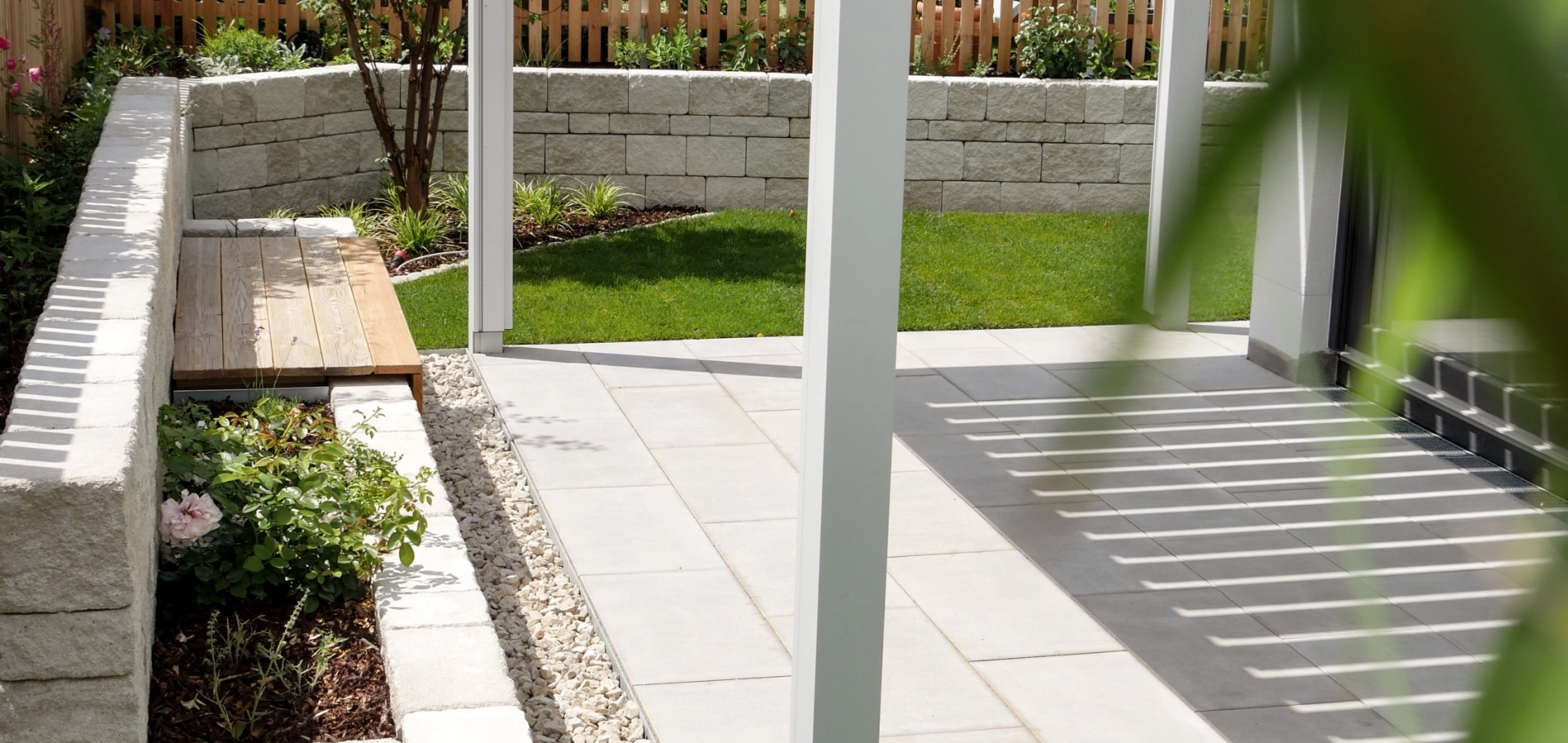
The time for cleaning is of course up to you, but spring is the best time. Since grass, leaves and other organic materials have sometimes soiled the surfaces during the winter, spring cleaning is the perfect time. This way, the patio is spruced up for spring at the same time. So nothing stands in the way of balmy spring days and summer evenings.
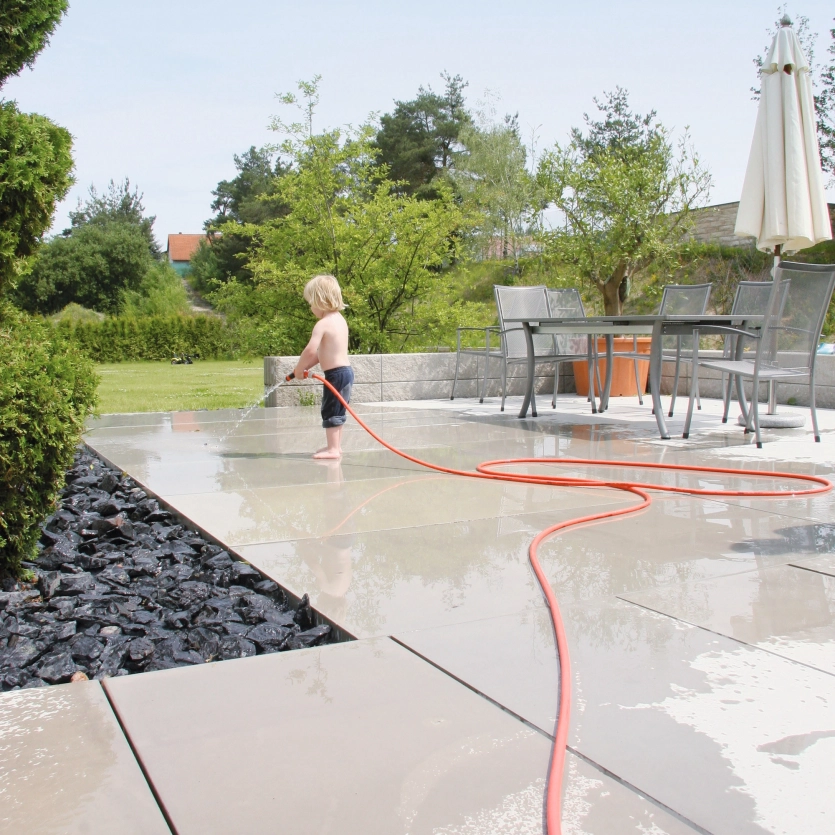
Good preparation is an important basis for proper cleaning. First of all, the floor should be cleared. This not only makes all areas accessible, but also reveals the extent of the soiling.
Basic cleaning should be carried out when the floor is dry. To do this, the surface should be swept with a broom or brush. Joints should also be cleaned when dry; joint brushes, scrapers or weed burners are suitable for this purpose.
The surface can then be cleaned with water: The stones are thoroughly moistened with tap water and then cleaned with a broom or scrubbing brush. The surface is then rinsed with clear water.
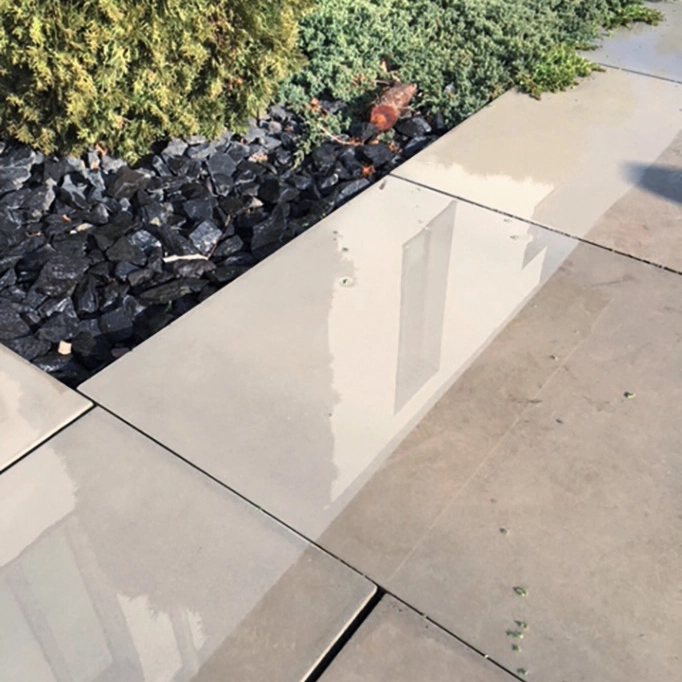
For stubborn stains, we recommend using a suitable cleaning agent. There is a wide range of cleaning agents that are specially adapted to the stain to be removed. There are acidic, alkaline and solvent-based agents - each of these products has areas in which they are effective or unsuitable.
When using cleaning agents, it is essential to follow the application instructions and steps. Depending on the cleaner, a sprayer, mop or watering can can be used to apply it to the surface. If necessary, a scrubbing brush can also be used.
Please be sure to test all cleaners on a concealed or inconspicuous area before using them on the surface. In the case of concrete blocks, there is a risk that the surface may be attacked by acidic cleaning agents, for example.
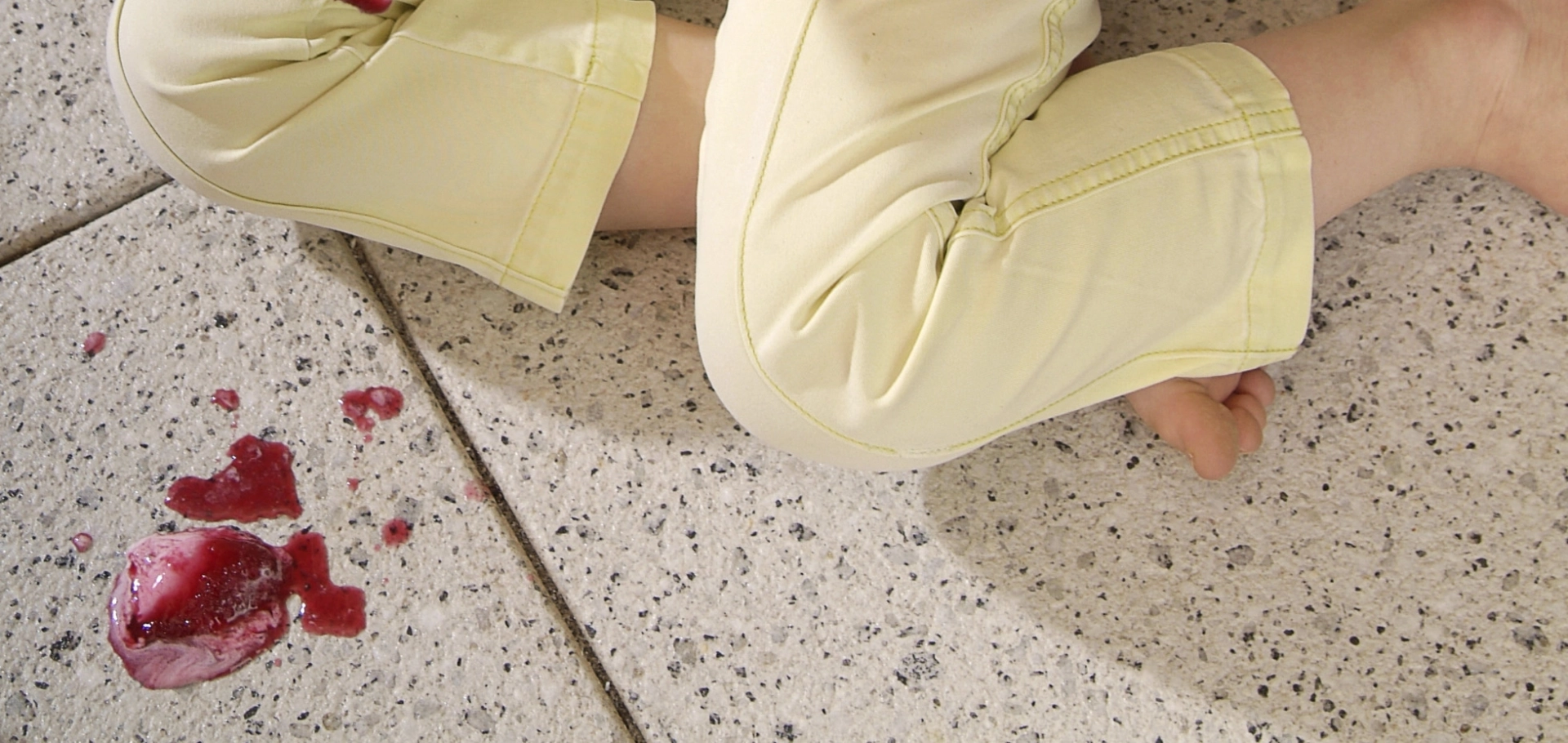
We always advise against mechanical cleaning. Vacuum sweepers and high-pressure cleaners - even with so-called "patio nozzles" - should not be used: on the one hand, they severely damage the joint filling in unbound construction, and on the other hand, the intensive water jet of the high-pressure cleaner roughens the stone surface so much that any sealants and impregnations are destroyed and this can lead to structural damage to the material.

For cleaned stone surfaces, we recommend a breathable long-term impregnation with GDM.STEINSCHUTZ neutral or GDM.STEINSCHUTZ perfekt (additional color deepening). The highly concentrated active ingredients of the care products penetrate deep into the surface and form a breathable, invisible protective film in the capillary pores that prevents moisture, oils, grease and aggressive dirt from penetrating.
In summer, the garden or patio is part of the living room. However, a lot of dirt gets onto the surfaces. Drinks are spilled, grease splashes from the barbecue and fresh berries and fruit from the garden fall onto the floor. These water-soluble and water-insoluble substances penetrate the stone and form stains. It is best to quickly absorb the substances with a damp cloth and rinse with plenty of clean water. This prevents the stains from penetrating deep into the stone structure.
White stains on concrete paving are a natural phenomenon that many people find annoying: limescale deposits. They occasionally occur on newly laid stone and are nothing more than excess lime that dissolves from the stone when it rains and is damp. They are particularly visible on dark paving.
The stains usually disappear by themselves due to weathering and can also be removed with special agents, water and a scrubbing brush.
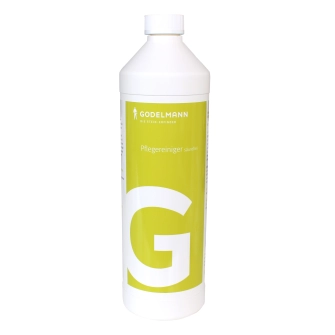
GDM.CARE CLEANER
Surface-active wipe care concentrate for cleaning and protective care of patio slabs. Has an intensive effect and leaves behind high-molecular care substances that are removed and renewed during the next application. This provides reliable protection against layer build-up and re-soiling.
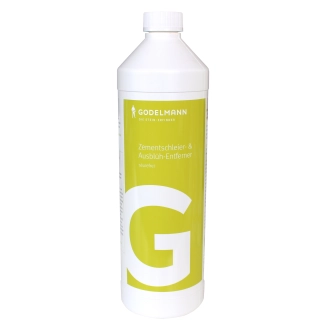
GDM.CEMENT RESIDUE AND EFFLORESCENCE REMOVER
Deep-acting special cleaner for fast and gentle removal of fine cement residues, limescale deposits and general soiling. The acid-free formula ensures particularly gentle cleaning. The cement residue and efflorescence remover is also suitable for polished tiles and untreated SVB surfaces (exposed concrete).
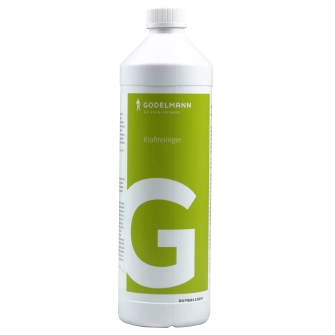
GDM.POWER CLEANER
Extra strong, self-acting concentrate for residue-free removal of the most stubborn mineral incrustations. Highly effective against efflorescence, concrete and mortar residues, cement residues and hardened dirt deposits. Can cause roughening on polished concrete blocks or untreated SVB surfaces.
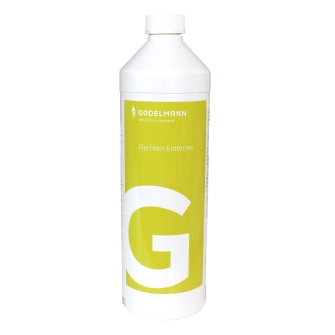
GDM.LICHEN REMOVER
This special cleaner, specially developed for removing extremely stubborn growths caused by all types of lichen, has a particularly long-lasting and fast effect. It can be used on a wide variety of stone surfaces. Suitable for driveways, patios, walls and much more.

GDM.GREEN DEPOSIT REMOVER
Deeply effective special cleaner for removing algae, mold, moss and all types of unwanted plant growth with a self-acting long-term effect. The highly concentrated acid- and chlorine-free formula guarantees maximum effectiveness with maximum material protection. The green deposit remover penetrates deep into the surface and protects against new soiling for up to a year.
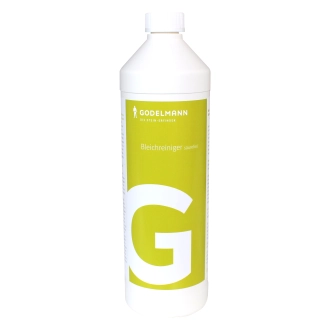
GDM.BLEACH CLEANER
Long-lasting, acid-free, active chlorine-based cleaner for removing dark vegetable stains or discoloration, e.g. caused by soil, leaves, wood or tannic acids. The bleach cleaner ensures bright and clean surfaces without time-consuming scrubbing. In addition, new soiling can be significantly reduced over several months.
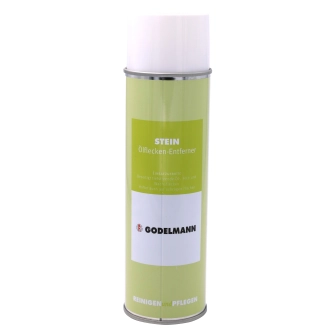
GDM.OIL STAIN REMOVER
Special product for the quick and effortless removal of stubborn oil and grease stains on concrete and natural stone, screed, ceramic, clinker, terracotta, etc. Also ideal for removing discoloration from edges. The self-acting action saves tiresome scrubbing or brushing. Does not attack stone surfaces as the oil stain remover is free from acids and alkalis. Also suitable for polished surfaces.
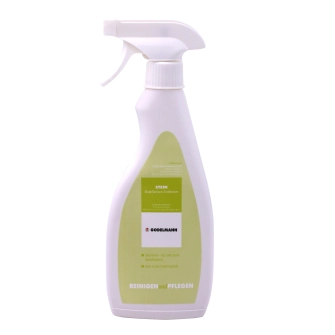
GDM.RUST STAIN REMOVER
Acid-free rust converter for the gentle and reliable removal of even deeply ingrained rust deposits, e.g.
caused by fertilizers containing iron, garden furniture, metal abrasion from equipment and tools or parked vehicles. The rust stain remover converts the insoluble rust into a water-soluble form that can simply be rinsed off.